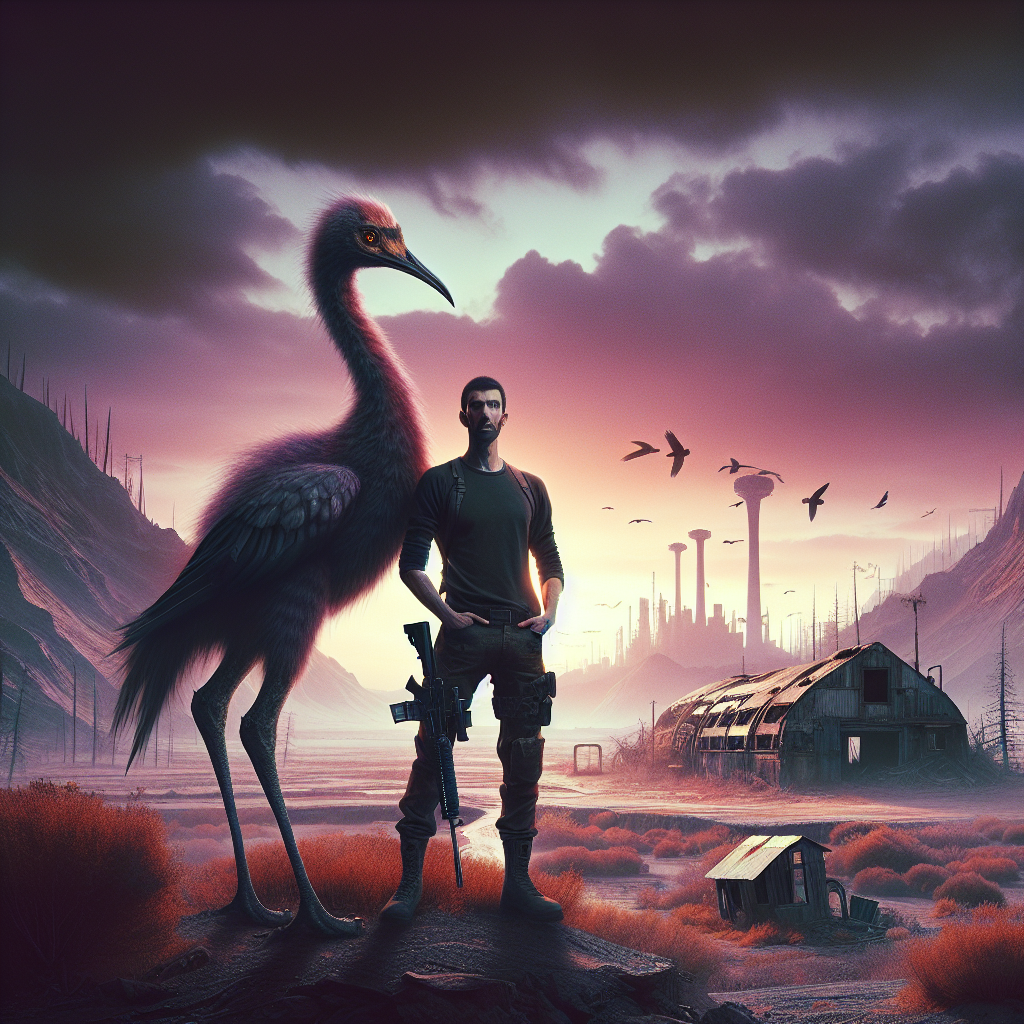Oryx and Crake Meets the Bible: Exploring the Intersection of Science Fiction and Scripture
Have you ever considered how the haunting world of Margaret Atwood’s "Oryx and Crake" might relate to the foundational teachings of the Bible? At first glance, these two works might seem worlds apart, but a deeper dive reveals fascinating connections. Let’s explore these parallels and uncover how the dystopian echoes of Atwood’s narrative resonate with timeless biblical principles.
Bridging Humanity and Technology
In "Oryx and Crake," we encounter a world transformed by technological advancements and genetic engineering. Humanity’s pursuit of innovation has led to unforeseen consequences, illustrating a society excessively reliant on technology at the expense of moral and ethical considerations.
Consider Genesis 11 and the story of the Tower of Babel, where humanity’s ambition led people to attempt to reach the heavens through their own ingenuity, only to be scattered by the confusion of languages. Similarly, Atwood’s portrayal of unchecked scientific experimentation warns us of the dangers tied to hubris and the pursuit of knowledge without wisdom.
Reflection:
-
How often do we prioritize technological progress over ethical considerations today?
-
Where should we draw the line in our pursuit of knowledge, aligning it with God’s wisdom?
The Sacredness of Creation
"Oryx and Crake" challenges readers to reflect on what it means to be human and our role within creation. The book vividly depicts humanity’s exploitation of the natural world, leading to its destruction—a theme that echoes our responsibility to steward the Earth as outlined in Genesis 1:28. Here, God entrusts humans with the care of His creation, calling us to be nurturing stewards rather than exploiters.
Psalm 24:1 reminds us, “The earth is the Lord’s, and everything in it.” Recognizing the sacredness of creation compels us to act with care and gratitude for the world God has provided.
Reflection:
-
In what ways can we embody the role of steward over creation in our daily lives?
-
How does seeing the Earth as a gift from God change our relationship with it?
The Quest for Immortality
The pursuit of immortality in Atwood’s dystopian society reflects humanity’s age-old fear of mortality and longing for eternal life. This echoes the biblical tale of the Tree of Life in Genesis 3, where Adam and Eve’s desire to obtain knowledge led them away from God’s presence and, ultimately, life everlasting.
The Bible reveals that true immortality isn’t found through technological means but through spiritual rebirth in Christ. As 1 Corinthians 15:53-54 says, “For the perishable must clothe itself with the imperishable… then the saying that is written will come true: ‘Death has been swallowed up in victory.’”
Reflection:
-
Why do you think humans have always been fascinated by the concept of immortality?
-
How can we shift our focus from temporal life to the eternal promises offered in Christ?
Ethical Implications of Gene Manipulation
Atwood’s story takes us into a realm where genetic manipulation alters the very fabric of humanity, posing ethical dilemmas that mirror contemporary discussions around bioengineering. As we advance technologically, we must weigh innovation against ethical frameworks that respect human dignity, as illustrated by Psalm 139:14’s reminder that we are “fearfully and wonderfully made.”
The Bible teaches that all life is sacred (Jeremiah 1:5), and these teachings encourage us to evaluate the moral implications of scientific pursuits.
Reflection:
-
What ethical boundaries should guide our scientific advancements today?
-
How might seeing each person as a creation of God influence our decisions regarding bioengineering?
Humanity’s Struggle with Morality
Themes of moral decay permeate "Oryx and Crake," highlighting a world where society’s ethical compass is askew. This portrayal urges us to reflect on our moral foundations and the biblical principle found in Proverbs 14:34: “Righteousness exalts a nation, but sin condemns any people.”
The story serves as a cautionary tale of what happens when societies lose their moral direction and forget God’s teachings.
Reflection:
-
Which moral principles guide your decisions in life today?
-
How can we ensure biblical teachings remain central in shaping our communities’ values?
Conclusion and Call to Action
Exploring the parallels between "Oryx and Crake" and biblical principles offers thought-provoking insights into the importance of aligning innovation with moral values, safeguarding creation, and seeking eternal truths. Just as Atwood cautions us with her dystopian vision, Scripture guides us to live wisely and ethically, rooted in God’s timeless truths.
Call to Action:
How does "Oryx and Crake" prompt you to rethink technological and ethical decisions in your own life? Share your insights or personal reflections in the comments below, and let’s foster a community rooted in thoughtful dialogue and spiritual growth. Moreover, consider how you can incorporate biblical stewardship and ethical considerations into your daily life, ensuring that progress is harmonized with principles of faith and morality.
SEO Keywords: Oryx and Crake, biblical principles, technological ethics, creation stewardship, pursuit of immortality, moral compass, bioengineering ethics, humanity and technology, sacred creation, eternal life in Christ.
If you want to learn how ANY book relates to Biblical principles, please try our Books and Scripture GPT. Simply type in the name of a book and let it show you insights you might not have been aware of!


